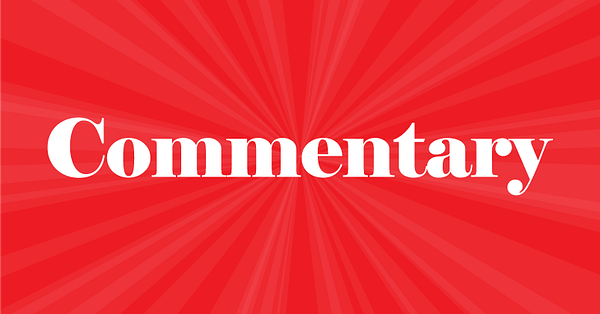Hello friends, IRL and from the internet ✨
You might have subscribed to this newsletter 2 years ago when I first put up my website, or recently after reading my first blogpost Don’t try to cure cancer.
Either way, welcome to the first edition of Infinite Game, a monthly and/or occasional playground for my thoughts and ideas. The internet is a magical place. I’m grateful that you’re here.
This month’s issue:
Living the life you choose: some thoughts on my own life decision, why we should reform K-12 before college, and how physical experiences are tools for knowing oneself
Other things on my mind: social class theory, crypto, friendships, philosophy
Goals and asks: my goals this month and what I’d love help on 🙏
Living the life you choose
Know thyself
I quit my startup job in February and took a cross-country road trip to move to SF in March. I didn’t know what I would do next. But I know that I’ll be fine in the end.
To me, 8 months ago, this would have been unthinkable. I was at a big tech company and got an offer to work at a super early-stage startup (pre-product). It took a lot of self-reflection for me to make the jump. Even then, I would have never quit a job without having something else lined up.
Ultimately, every problem in life boils down to knowing oneself. Back then, I didn’t know myself enough — from my values about work to certain work styles to my own abilities. It’s only through putting myself in the startup and realizing that I’m capable that I have the courage to step out and define my own path.
Life is an infinite game where every time you gain a new experience, you unlock a newly discovered part of yourself. That’s also why I moved to SF. To unlock more of myself, I need more novel, high-quality input, and lots of it.
Not everyone needs college, but we all need better K-12
Mihir Desai says in The Trouble with Optionality:
“The Yale undergraduate goes to work at McKinsey for two years, then comes to Harvard Business School, then graduates and goes to work Goldman Sachs and leaves after several years to work at Blackstone. Optionality abounds!
This individual has merely acquired stamps of approval and has acquired safety net upon safety net. These safety nets don’t end up enabling big risk-taking—individuals just become habitual acquirers of safety nets.
…
[They] postpone their dreams and undertake choices that they think will enable their dreams. But they fail to understand that all of these intervening choices will change them fundamentally—and they are, in fact, the sum total of those choices.”
Lived experiences change a person’s model of the world. By pursuing optionality, you become the kind of person who will keep accumulating optionality. So, “If your dreams are apparent to you, pursue them. Creating optionality and buying lottery tickets are not way stations on the road to pursuing your dreamy outcomes. They are dangerous diversions that will change you.”
The problem is, most people don’t have dreams. Most people are utterly unambitious. I don’t mean ambitions as in mimetic desires — like being an MD at Goldman Sachs or founder of a unicorn because that’s what everyone else aspires to be. I’m talking about having a vision for one’s own life. People want to get rich but they don’t know what for. Ask 100 people what they would do with $100 million, how many can come up with a detailed plan for what to do with that money? That’s why people default to optionality.
It all starts with not knowing oneself. And the fault lies with our education system — it deprives us of lived experiences and forces us to make critical decisions without enough information about ourselves.
K-12 is way too long. The founding fathers went to college when they were around 13-16. Back then, the standards for admissions and graduation are also much higher. Forcing everyone to spend 12 years in school, taught with curriculum made for the least common denominator is not the best for intellectual development.
For most people, the college and major they choose can be monumental decisions. Most college students don’t have enough lived experiences to know what they want. We make students stay in school for 12 years without much useful knowledge, then force them to decide to take on debt for a degree they don’t even know if they want.
The real world is an infinite game, but K-12 teaches students to play finite games. Dan Wang describes this in College as an incubator of Girardian terror:
Most 18-year-olds are not super differentiated from each other. By construction, whatever distinctions any does have are usually earned through brutal, zero-sum competitions. These tournament-type distinctions include: SAT scores at or near perfection; being a top player on a sports team; gaining master status from chess matches; playing first instrument in state orchestra; earning high rankings in Math Olympiad; and so on, culminating in gaining admission to a particular college.
That’s why I think people who push for colleges to be vocational schools miss the mark. What we need is shorter and better K-12 that gives students the space to experiment and understand themselves.
Ideally, in the future we can have something like this:

There are some alternative schooling models, such as Montessori, Sudbury, or unschooling. They all start with the belief that children are naturally curious and don’t need to be forced to learn, and that they should be able to choose to follow what they are interested in.
These models are much better than traditional public K-12, but I still have mixed feelings. If knowing yourself requires obtaining several different experiences, that also includes experiences you might not like. And a lot of times, you won’t know if you like something until you do it for a period of time. So purely following your interests at an early age might not be a good thing either.
A quote I like from The Well-Trained Mind:
A classical education assumes that knowledge of the world, past and present, takes priority over self-expression. Intensive study of facts equips the student for fluent and articulate self-expression later on. Too close a focus on self-expression at an early age can actually cripple a child later on; a student who has always been encouraged to look inside himself may not develop a frame of reference, a sense of how his ideas measure up against the thoughts and beliefs of others.
I don’t have the answer to what the right K-12 should look like, but I’m optimistic about the future of education. COVID has made parents reconsider their children’s Zoom education as well as brought more funding to this space, and hopefully we will soon see a future where the love of learning is no longer stifled by public K-12 system.
Sensory experiences and the physicality of life
I traveled a lot this month. Being holed up at home for almost a year, I forgot how great it feels to be out and about. I let myself be drenched in the Southern rain, swallowed in scorching sun of the dessert, consumed by exhaustion climbing up the mountains of the West. The raw physical sensations made me feel alive like never before. It’s like I discovered a new language to communicate with my body — a language that connects me with the magnificent physicality of this world.
Marvin Minsky said in The Emotion Machine:
If you ‘understand’ something in only one way, then you scarcely understand it at all—because when you get stuck, you’ll have nowhere to go. But if you represent something in several ways, then when you get frustrated enough, you can switch among different points of view, until you find one that works for you!
Sometimes we forget that physical experience is just as important of a tool as intellectual one to help us make sense of the world. Even though the experience is not something I can intellectualize and put into words, just going through it gives me a new understanding of myself. As Galen Strawson said in Against Narrativity:
People can develop and deepen in valuable ways without any sort of explicit, specifically Narrative reflection, just as musicians can improve by practice sessions without recalling those sessions.
I used to hate being “unproductive” — working out without listening to podcasts, taking a walk without having any reflections or epiphany. But each of these times I did learn more about myself, I just needed to get out of my head more and experience it.
Living the life you choose means first and foremost knowing yourself. And knowing yourself includes knowing all modalities.
Other things on my mind
The Michael Scott Theory of Social Class: This essay explains a lot of what I see in current discourse
Crypto, particularly NFTs, has made news lately. I’m interested in how this can be used to fund scientific research — e.g. social tokens for independent researchers
Intentionally seek out extreme people and befriend them
 The quoted tweet was a joke, but I do seek out strong personality types because it often leads to exposure to new ideas, interests, activities, values, etc. This is mainly what I look for in friends.[Me, for last ~7 years] *Intentionally seeks out eccentrics, contrarians, stubborn disagreeable-types, neuroatypicals, hipsters, hypomanics, boundary pushers, and internet weirdos* [Also me, for last ~5 years] Why is everyone in my life so DIFFICULT?
The quoted tweet was a joke, but I do seek out strong personality types because it often leads to exposure to new ideas, interests, activities, values, etc. This is mainly what I look for in friends.[Me, for last ~7 years] *Intentionally seeks out eccentrics, contrarians, stubborn disagreeable-types, neuroatypicals, hipsters, hypomanics, boundary pushers, and internet weirdos* [Also me, for last ~5 years] Why is everyone in my life so DIFFICULT? John Backus @backus
John Backus @backusSome philosophical diversity for Silicon Valley people
Goals and asks
Public accountability is great, so I’m publicizing some goals I have.
This month’s goals:
Run 6x a week, 15 minutes each time: I’ve been running casually for a year and now want to increase my speed and endurance. I’m making improvements first on frequency, then duration, then intensity.
Finish QuickStart Molecular Biology
Decide on my next steps and ship something: I have been doing a bunch of different things since leaving my job — consulting for startups, exploring some ideas, moving across the country. By this month, I want to have a more concrete idea of what I want to do by shipping something that moves me towards that direction, whether it’s a blogpost or some prototype. I have a few asks:
If you know someone who took time off and figured out their next steps, I would love to talk to them, especially if they were deciding between joining a company vs starting their own thing.
One project I have in mind is building infrastructure for biotech (e.g. how do you make AWS/Heroku for biotech?) — if there’s anyone you think I should talk to (working in biotech, thinking about the same thing), I’d love to be connected!
If you have thoughts about these ideas or are working on something similar, I’d love to talk :)
Connect with me
Have thoughts about the newsletter? Reply to this email or leave a comment 🤗 You can also find me here:
Want to stay up to date?







I've seen *so so so so SO* many summaries of what we've done wrong with education, and this one encapsulates the most important points the best with the minimum of extra reading for all other people.
What do you see as the big benefit of Heroku/AWS for biotech? :-)